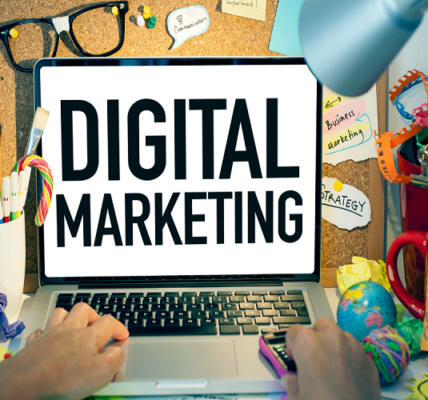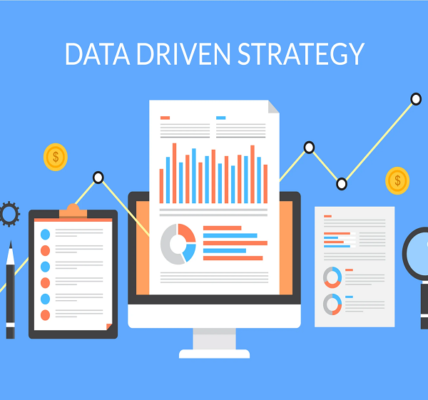In the world of digital marketing, generating high-quality leads is essential for any business-to-business (B2B) company.
B2B leads are potential customers who have shown interest in a company’s products or services and have the potential to become paying customers.
These leads are the lifeblood of any B2B organization, driving sales, revenue, and growth. In this article, we will explore the importance of B2B leads generation in digital marketing and why it should be a top priority for businesses.
1. Fueling Business Growth
B2B leads are the foundation for business growth. Without a steady stream of qualified leads, a company’s sales pipeline will dry up, and growth will stagnate.
Effective lead generation strategies enable businesses to continuously attract and nurture potential customers, increasing the chances of converting them into paying clients.
By consistently generating high-quality B2B leads, companies can expand their customer base and fuel their growth trajectory.
2. Targeted Marketing
B2B lead generation allows businesses to focus their marketing efforts on a specific target audience.
Unlike broad-based marketing strategies, such as mass advertising, lead generation allows for precise targeting based on industry, job title, company size, and other relevant parameters.
This targeted approach ensures that the marketing message reaches the right audience, maximizing the chances of attracting qualified leads that are more likely to convert into customers.
3. Cost-Effective Marketing
B2B lead generation through digital marketing channels is often more cost-effective than traditional marketing methods.
Digital platforms offer various channels such as search engine optimization (SEO), content marketing, email marketing, and social media ads, which can generate leads at a fraction of the cost of traditional advertising.
With precise targeting and the ability to measure and optimize campaigns, digital marketing provides a higher return on investment (ROI) for lead generation activities.
4. Data-Driven Decision Making
In the digital marketing landscape, data is abundant. B2B lead generation allows businesses to collect valuable data on potential customers, including their preferences, behavior, and engagement patterns.
By analyzing this data, businesses can gain insights into their target audience’s needs and preferences, allowing for more informed decision-making.
Data-driven marketing strategies enable businesses to optimize their lead generation efforts, refine their messaging, and improve conversion rates.
5. Building Relationships
B2B lead generation is not just about acquiring customers; it is also an opportunity to build relationships.
Effective lead generation strategies involve nurturing leads through personalized and targeted communication.
By providing valuable content, addressing pain points, and engaging with potential customers, businesses can establish trust and credibility.
Building strong relationships with leads can lead to long-term customer loyalty and repeat business.
6. Sales and Marketing Alignment
B2B lead generation helps foster alignment between sales and marketing teams. Both teams have a shared goal of generating revenue, but misalignment often leads to inefficiencies and lost opportunities.
Through effective lead generation strategies, businesses can create a unified approach, ensuring that marketing efforts generate qualified leads that align with the sales team’s objectives.
This alignment enables better lead qualification, smoother handoffs, and improved collaboration between teams.
7. Adaptability and Scalability
Digital marketing offers businesses the flexibility to adapt and scale their lead generation efforts based on evolving market conditions.
With the ability to measure and analyze campaign performance, businesses can identify what works and what doesn’t, allowing for continuous optimization.
Digital marketing channels also provide scalability, enabling businesses to reach a wider audience and generate a higher volume of leads as needed.
8. Competitive Advantage
In today’s digital age, businesses operate in highly competitive markets. B2B lead generation allows companies to gain a competitive advantage by effectively reaching and engaging potential customers before their competitors do.
By implementing innovative digital marketing strategies, businesses can differentiate themselves, establish thought leadership, and position themselves as industry experts. This can give them a significant edge in winning over prospects and closing deals.
9. Long-Term Revenue Generation
B2B leads generation focuses not only on immediate sales but also on building long-term customer relationships. Acquiring a customer is just the beginning of a potentially lucrative journey.
By consistently generating B2B leads and nurturing them over time, businesses can generate a steady stream of revenue through repeat business, upselling, and cross-selling opportunities.
Loyal and satisfied customers can also become advocates, referring new leads and contributing to further business growth.
10. Market Research and Validation
B2B lead generation provides valuable market research and validation for businesses. Through lead generation campaigns, businesses can gauge the interest and response from their target audience.
This feedback can help refine marketing strategies, product development, and overall business positioning.
By closely monitoring lead generation efforts and analyzing the data collected, businesses can make informed decisions based on real-time market insights.
11. Enhancing Brand Awareness
Effective B2B lead generation strategies contribute to brand awareness and visibility in the market.
Through consistent and targeted digital marketing efforts, businesses can increase their online presence, engage with their audience, and establish brand authority.
When potential customers repeatedly come across a brand through various channels, it creates a sense of familiarity and trust.
This brand awareness can greatly influence a prospect’s decision-making process and increase the likelihood of converting them into customers.
12. Adaptation to Changing Customer Behavior
Consumer behavior and preferences are constantly evolving, especially in the digital landscape. B2B lead generation allows businesses to stay attuned to these changes and adapt their marketing strategies accordingly.
By closely monitoring and analyzing data on lead behavior and engagement, businesses can identify emerging trends, understand customer pain points, and tailor their messaging and offerings to meet evolving needs.
This agility in responding to customer behavior ensures that businesses stay relevant and continue to attract qualified leads.
13. Collaboration and Partnerships
B2B lead generation can foster collaboration and partnerships between businesses. In the process of generating leads, businesses often engage with other organizations in their industry or related sectors.
These interactions can lead to mutually beneficial relationships, such as strategic partnerships, joint ventures, or referral programs.
By leveraging lead generation activities, businesses can not only acquire new customers but also forge valuable connections that expand their reach and open doors to new opportunities.
Conclusion
B2B lead generation is a crucial component of digital marketing for any B2B company. It drives business growth, enables targeted marketing, and provides cost-effective strategies to reach and engage with potential customers.
By leveraging data and building relationships, businesses can optimize their lead generation efforts, align sales and marketing teams, and adapt to changing market dynamics.
In the competitive B2B landscape, effective lead generation can be the key differentiator that sets a business apart and propels it towards success.





